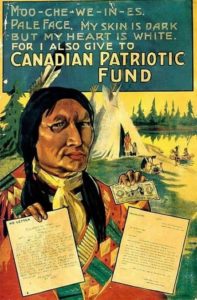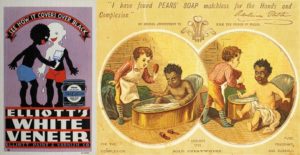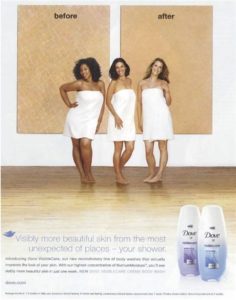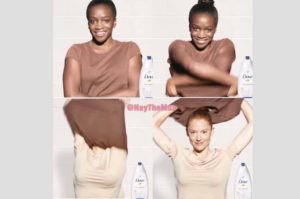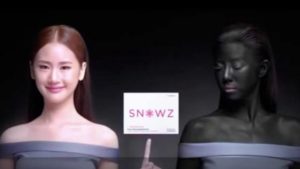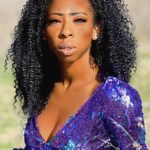By Nicole M. Brevard* (This article was originally written and published in 2017.)
‘…And her hips were wider than her shoulders, wide like her lips. Her supple skin, the color of toasted copper and brass, luminous like a first place medal. Her hair wound and coiled like the tender coat of a virgin lamb, free yet dense like the purest wool, black like the cosmos sitting high above her caramel skin as crown worn by a Queen.’
Imagine that! A world that placed black beauty on such pedestal. But, this is what the world has described as eminently beautiful in our literary history:
‘…And her skin was pale as snow, her eyes as blue as the sky and her golden locks fell on her porcelain face like a silken waterfall yellow and shining like the sun.’
Both are examples I have written but the latter is so common there was no need to find an actual reference because it is something we have all heard and read on many, many occasions.
Beauty Products Belittle Blackness
This is the not a new thing, the black skin has been a subject of harassment and belittling since the time of colonization, just like our hair, our features, our dance and so on. Dark skin has been belittled since early colonial days.
The poster reads, “My skin is dark but my heart is white.”
In the past, products like Elliott’s White Veneer and Pear’s Soap were advertised to be SO good that they could change black skin to white!
International Beauty Companies Promote European Beauty
International companies like Dove, Nivea, Estee Lauder, and so many more, have used these ideas of European beauty as a marketing tool and the western world has implemented it for centuries. Beauty companies belittle black skin color to sell their products. The sentiment that “white is right” and that white skin is the norm but every other color is an anomaly is a common belief in the USA and in other places in the world.
Nivea 2017
Dove 2011 – “Before” is black while “After” is whiter.
Dove 2017 – Product use changes black to white skin.
SNOWZ in Thailand. The slogan, “Whiteness makes you win.”
Beauty and Economics
It’s one thing for a person to have an opinion or proclivity against being dark, or brown skinned, but it is another thing to have these beliefs affect the economic survival of people around the world.
What do I mean by economic survival? Well, I mean opportunities for education, employment and owning land. The three work together. If you have a quality education you can get a good job or start a business. You can then buy land and buy a home. Once you buy a home you become part of a community. Within that community, you have children who will then go to school and continue this cycle. People who have access to education, employment, and home ownership have a greater chance of economic survival.
How do beauty standards come into the picture? Well, by belittling one group, as in marketing black features as inferior, they are subconsciously telling the world IF you look this way, life will be better, you will be more beautiful and you will have better opportunities in life (i.e. economic).
When beauty companies display the sentiment of, lighter skin, better life, and belittles black beauty, they reduce the chances of economic success for black women and other women of color. The ploy to chastise brown and black skinned people as DIRTY is the EXACT catalyst that causes little white boys and girls to throw rocks at brown kids, to call them names in school.
The reality is that the majority of the world is brown, black and shades thereof, and the minority skin complexion is WHITE on this planet. Today, more than ever, it is vitally important for people of color to be confident our features, to celebrate who we are and where we come from. We cannot look at these ads as a reflection of ourselves and what we lack. We must look at these ads as an attack on our economic survival.
You may not be privy to politics or even too aware of economics, but if you do nothing else to uplift the black and brown community, at the very lease love yourself, love your skin, love your features that in its self can be the greatest resistance.
*About the Author: Nicole M. Brevard is Owner & CEO of Mystic Studios in Los Angeles, California.


